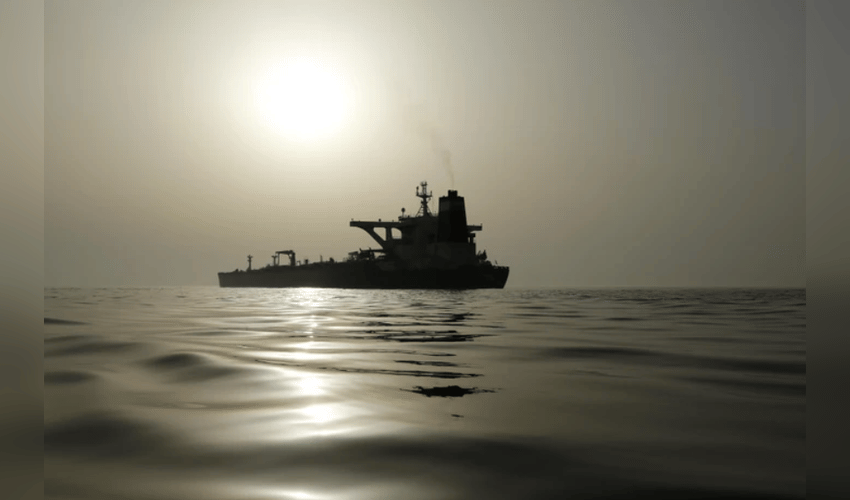Economy
An India-bound oil tanker transporting Russian crude has reversed its course in the Baltic Sea.

A tanker transporting Russian crude oil to India has unexpectedly reversed direction and is now stationary in the Baltic Sea, hinting at possible interruptions in oil trade between India and Russia following tighter U.S. sanctions on Moscow. According to ship-tracking data, the vessel — named Furia — was traveling west through the strait separating Denmark and Germany before making a U-turn on Tuesday. It then proceeded only a short distance before slowing almost to a stop. The Aframax-class tanker is reportedly hauling a shipment supplied by Rosneft PJSC, data provider Kpler noted.
This turnaround near the Fehmarn Belt comes shortly after the U.S. imposed sanctions on Rosneft and fellow Russian energy giant Lukoil PJSC. The U.S. Treasury has instructed that dealings with these companies must end by November 21. The restrictions put at risk a key, lower-cost source of crude oil for India’s refineries. Senior officials at major Indian processors told Bloomberg they anticipate a sharp drop in Russian oil imports as a consequence.
The Furia loaded nearly 730,000 barrels of Urals-grade crude at the Russian port of Primorsk on Oct. 20, according to data from Kpler and Vortexa. Initially, the ship listed Sikka — a port in Gujarat that supplies Reliance Industries Ltd. and Bharat Petroleum Corp. Ltd. — as its destination, with arrival planned for mid-November. The vessel later updated its itinerary, pointing instead to Port Said in Egypt for mid-next month. Tankers heading to India via the Suez Canal often label Port Said as a temporary waypoint before updating their final destination after clearing the canal.
Reliance, which has a long-term supply contract with Rosneft for Urals crude, recently emphasized that it will adhere to sanction requirements and has been observed shifting toward Middle Eastern supplies. Indian state-controlled refiners are also becoming more cautious about purchasing oil linked to companies targeted by U.S. sanctions. Indian refineries typically purchase crude on a delivered basis — meaning ownership transfers only upon offloading at the destination port. Requests for comments sent to Reliance and BPCL have not yet been answered.
Meanwhile, some European nations — including Denmark — have increased scrutiny of tankers to prevent shipments of Russian oil from moving through their territorial waters. Denmark recently announced it will focus inspections on older vessels, which frequently make up Russia’s so-called shadow fleet.



